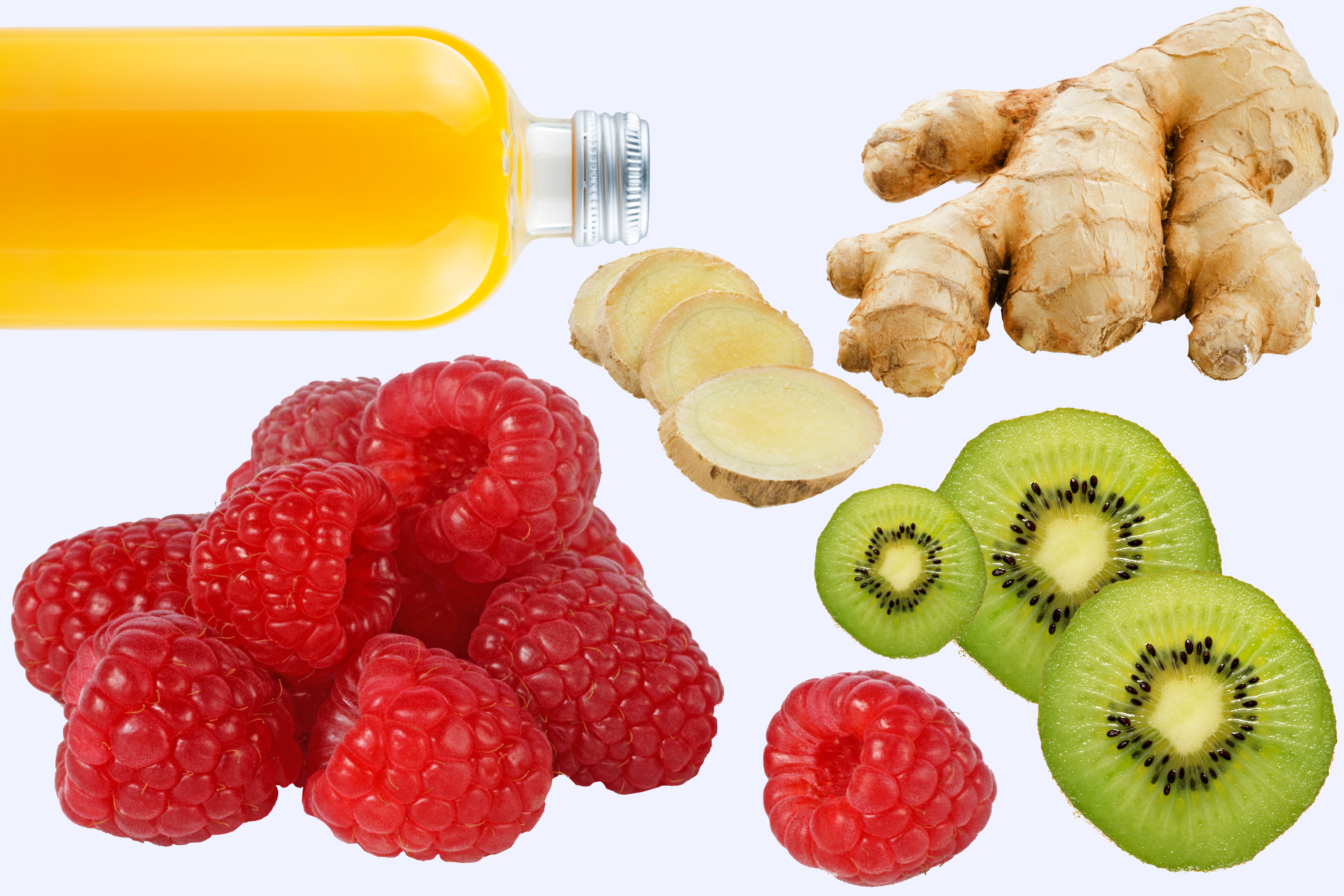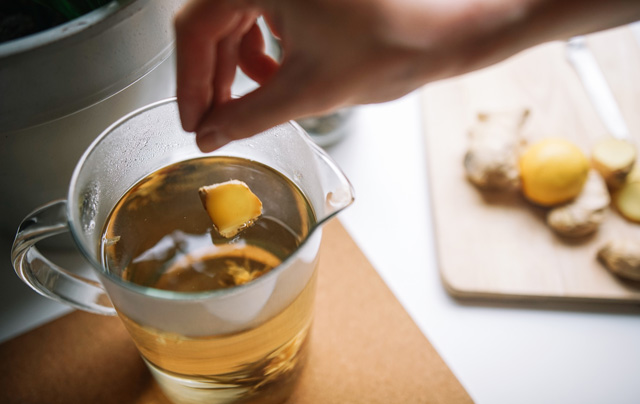Best hangover foods – and foods to avoid on a hangover
Sore head after a night out? Try these hangover foods from baked eggs to blueberry pancakes...


Parenting advice, hot topics, best buys and family finance tips delivered straight to your inbox.
You are now subscribed
Your newsletter sign-up was successful
Had an evening of indulgence? You need to know what the best hangover foods are so your body can quickly recover.
Knowing how to cure a hangover after a few too many can mean the difference between a good day and a day spent wasted under the sheets. Yet whilst the answer may giving up alcohol and switching to non-alcoholic wine instead - we've found a host of delicious foods that are scientifically proven to help rejuvenate your body.
When you’re hungover, you’ll no doubt feel tired and exhausted. Not only because it was a late night but because - as studies show - even when did crash out, you won’t have experienced the deep sleep you need to feel completely rested. That’s why our experts have suggested high-protein foods like chicken breast, which will give you a longer-lasting energy boost.
As we all know, a few glasses of wine can also leave you feeling dehydrated and have a damaging effect on your skin. One of the best things you can do is simply drink lots of water. A moderate amount of orange juice will also hydrate you, while giving your battered immune system a boost in vitamin A, B, and C vitamins. Our experts share more advice for when you've failed to take measures to prevent a hangover the night before and are feeling it now.
Best hangover foods
1. Eggs
A classic breakfast item and one of the best hangover foods of all time, there are a few reasons why you should start the day after night before with an egg or two. Registered nutritionist Rob Hobson explains why: 'Eggs may help as they are a rich source of cysteine, which is an amino acid used by the body to produce glutathione.'
He adds: 'Glutathione is used to breakdown acetaldehyde (a toxic byproduct of alcohol breakdown) but when faced with large amounts of alcohol glutathione is depleted and acetaldehyde builds up while the liver synthesizes more glutathione. So, in theory, having plenty of cysteine in the body (from food like eggs) may help to support the synthesis of glutathione, helping to rid the body of acetaldehyde more quickly.'
Cysteine is found in high-protein foods so if you don't eat eggs try chicken, turkey, cheese, chickpeas, lentils, sunflower seeds or walnuts.
Parenting advice, hot topics, best buys and family finance tips delivered straight to your inbox.

2. Ginger
One of the very best hangover foods you can consume is ginger. Women who have experienced morning sickness during pregnancy will attest that a natural way to ease nausea and sickness is to have some ginger. 'Ginger has been widely researched for its ability to quell nausea,' confirms Rob. 'One of the best ways to enjoy this is in a tea when you get up. Try adding 1tsp of dried ginger, ½ lemon and 2tsp honey to a teapot with boiling water.'
You could also use fresh ginger root. Simply add 3-4 slices to boiling water and let it steep for 5-8 minutes before sipping. Don’t eat ginger raw or drink ginger beer, as most brands don’t contain enough ginger to have any effect, although you could try crystallised ginger.
3. Chicken breast and other lean protein
Although you may be craving a salty bacon sarnie, a lighter, leaner and less processed protein is not only easier to digest, it will make you feel better. 'Choosing a protein lunch containing chicken breast or another lean protein can help energy levels during the day. This makes it a good option for lunch to avoid mid-afternoon energy slumps, which may be more pronounced if you are already suffering the fatigue of a hangover,' advises Rob.
He explains why: 'Research from Cambridge University looked at brain cells called orexin-hypocretin neurons in relation to their ability to promote wakefulness by signals transmitted by these cells' and it was found that amino acids in protein stimulate these cells.
4. Bitter greens
Don't reject the suggestion that you should eat healthy salad leaves as they are one of the best hangover foods you can have. 'Bitter greens may not seem that appealing, but they may be just the thing you need,' says Rob. He explains why: 'These foods –which include rocket, cabbage and kale – help encourage the flow of bile through the liver. This can help to remove toxins more efficiently.'
For a fast route out of a hangover, Rob recommends using bitter greens to make a healthy salad with a lean protein, such as chicken.
5. White toast
Remember having a stomach bug as a child and your mum giving you white rice or white toast to nibble on? There's a logic to that. Rob tell us why: 'If things are really bad and you are seriously struggling to keep anything down, then try dried toast when you get up. Bread is rich in carbohydrates which supply the body with an immediate source of energy.'
And the reason for white bread and not brown? 'White bread may be a little easier to digest and cause less irritation to a sensitive gut.' he says.
6. Orange juice
A common go-to hangover cure because of its vitamin C content, orange juice – especially freshly squeezed – can provide you with a much needed boost. ‘It’s one of the best ways to rehydrate because oranges are a source of vitamins A, B and C that support your immune system,’ says nutritionist Elizabeth Wall.
A word of warning though – orange juice can irritate the lining of a sensitive stomach, so if you're feeling rough have a glass with food or drink some diluted with water.
7. Berries and kiwi fruit
Don't like orange juice or find it too acidic? Rob recommends snacking on fruit such as berries (strawberries, raspberries, blueberries) or kiwi fruit – both of which are richer in vitamin C than oranges. 'Alcohol can induce oxidative stress which means free radicals outweigh the antioxidants that neutralise them,' he explains. 'Both vitamin C and glutathione are powerful antioxidants. Research has suggested that by attacking free radicals, vitamin C may help to spare levels of glutathione.'
If you're not a fan of berries or kiwi fruit, there are other ways to absorb vitamin C. Squeeze fresh lemon or lime juice into sparkling water, eat slices of red pepper with some hummus, or include broccoli in a light stir-fry.
8. Wholegrains
When we drink a lot of alcohol we deplete the B vitamins in our body. Women, especially, are prone to certain vitamin B deficiencies, so it's particularly important to replenish lost stores of these vitamins.
Rob confirms this: 'B vitamins are particularly vulnerable to alcohol. Your body converts alcohol sugars into fatty acids (this one of the reasons why alcoholics are prone to fatty liver disease). Alcohol also inhibits the absorption and usage of nutrients such as B1, B12 and folic acid (B9) which can run the risk of low levels of these nutrients – a symptom of which is tiredness and fatigue amongst other things.'
Wholegrains are also complex carbohydrates. Not only are they higher in nutrients than refined carbs but they're higher in fibre too, providing a slow release of energy rather than a spike then crash – which is the last thing you need on a hangover. One study found that breakfasting on complex carbs instead of refined (simple) carbs led to less fatigue. Fill up on comfort food such as a bowl of oatmeal, wholewheat pasta, buckwheat (soba) noodles, or a chicken and avocado sandwich made with wholewheat bread.
9. Herbal tea
A steaming cup of black coffee on its own is acidic, which won't help a delicate stomach or the hangover symptoms of heartburn and nausea. Caffeinated drinks can also have a mild diuretic effect, though the jury is out as to whether coffee is diuretic enough to intensify dehydration.
However, alcohol is a diuretic that can cause dehydration, which – in turn – can trigger some of the more unpleasant symptoms of a hangover, such as a headache, migraine, dizziness, thirst and fatigue. Therefore, rehydrating the next day is key. You know the drill – drink plenty of water in between drinks and before bed, as well as the next day. 'And a cup or two of nettle or dandelion tea can support liver and kidney function,' says clinical nutritionist Beth Morris.
10. Globe artichoke extract
While globe artichoke extract isn't technically a food, it derives from one. And it gets results. Rob tells us that if you are a regular drinker then 'you may want to consider globe artichoke extract (£10.45 for 120 tablets, Healthspan). This supplement stimulates bile production and can help to relieve bloating and other symptoms of indigestion associated with alcohol consumption.'
What should you not eat when hungover?
Now that you know what the best hangover foods are, you'd be wise to take not of the worst things you can eat after a heavy night.
The fry up (and other greasy foods)
It's an iconic post-booze food but a fry up is also one of the worst meals you can eat after a big night. Rob explains why: 'It sounds like a good idea but the reality is likely to leave you feeling sluggish. This is because your body is trying to break alcohol down into acetaldehyde, which can actually be toxic and is what causes the hangover and indigestion and heartburn, making your hangover much worse.'
Rob continues: 'I think a lot of this tradition is to do with habit but interestingly it might also be to do with your brain chemicals. Research carried out by scientists at the University of North Carolina suggests that a brain chemical called galanin may be at the root of our craving for a full English the morning after a heavy drinking session.
Galanin production increases after drinking and researchers think that this chemical may be stimulated by triglycerides, which increase when we consume large amounts of alcohol. This chemical increases our appetite for fats – hence the craving for a fry up or other greasy foods,' he explains.
However, all is not lost. A healthier version of a fry up could do some good, as long as it’s high in quality protein, healthy fats and antioxidants, says Beth. A veggie version with poached eggs, wilted spinach, grilled tomatoes, avocado and homemade baked beans will help replenish your body.

Rob Hobson is an award-winning registered nutritionist, with more than 15 years experience. Accredited by the AFN and SENR, he also has degrees in nutrition, public health nutrition and sports nutrition. Rob is a published author of three successful books, Unprocess Your Life, The Detox Kitchen Bible and The Art of Sleeping. He has acted as Head of Nutrition at Healthspan since 2013.
Video of the Week

Debra Waters is an experienced online editor and parenting writer. She also has a strong background on health, wellbeing, beauty, and food. She currently writes for Goodto and Woman&Home, and print publications Woman, Woman’s Own, and Woman’s Weekly. Debra has written for What to Expect, Everyday Health, and Time Out. In addition, she has had articles published in The Telegraph and The Big Issue.